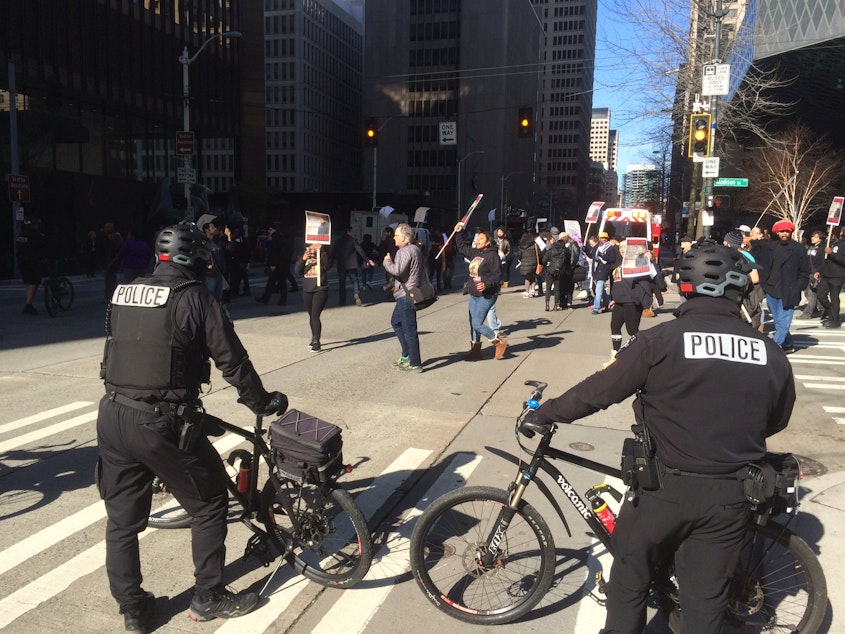Civilians will oversee Seattle police conduct, but there's debate over details

Seattle Police reforms that are five years in the making took a big step forward this week. A City Council committee approved a measure to put civilians in charge of police oversight.
The council will vote on the measure for the first time on Monday. The measure puts three civilian groups in charge of monitoring police. The existing Office of Police Accountability will take complaints from the community about police conduct. A new Office of Inspector General will oversee that work, and will oversee SPD policies and practices. The final element, a 21-member Community Police Commission, will work to amplify community concerns about police.
City Councilmember Lorena González has led the reform effort.
González: "This process included three study missions across the country, to New York, Los Angeles, and New Orleans, and nine committee meetings, including two public comment meetings."
Even after dozens of public and closed-door meetings, there's still debate.
Sponsored
Some residents think the Community Police Commission should be able to tell the inspector general what to investigate. Anita Khandelwal with the King County Department of Public Defense testified for that change this week.
Khandelwal: "The body that we have confidence in would raise up and identify those issues for investigation is the CPC. It is incredibly important to be able to require that the inspector general focus on these issues."
She says the community commission should have authority to make sure the inspector general investigates certain problems. She’s concerned about, for example, people getting their right to a lawyer and fair interrogations after they are arrested.
On the other end, Seattle’s city attorney and chief of police say the community commission may have too much authority already. Both officials sent a letter to Gonzalez last week saying the reform measure is too complex.
Ultimately, the measure will need the approval of a federal judge. In 2012, Judge James Robart told Seattle's Police Department it needed to address excessive force and biased policing. The legislation is the city’s attempt to make sure that progress continues long term.
Sponsored
González: "We have a piece of legislation in front of us that truly does represent police reform, where we are continuously improving the department, and the public trust within our department.”
The City Council will vote in its 2 p.m. meeting Monday.

